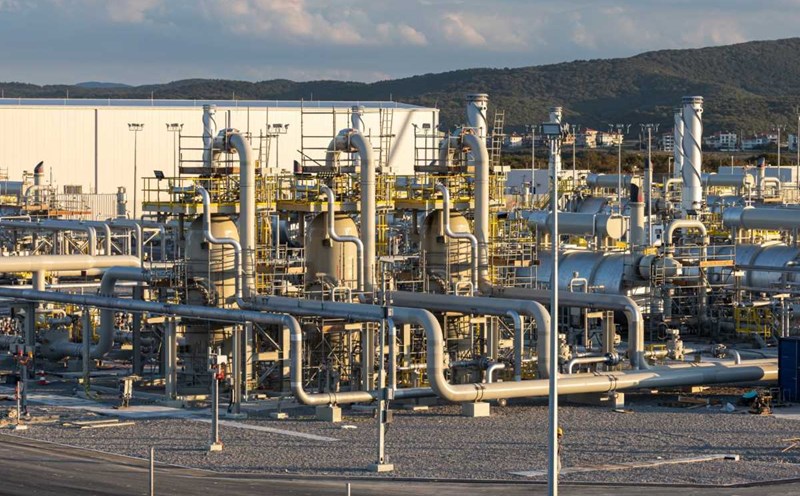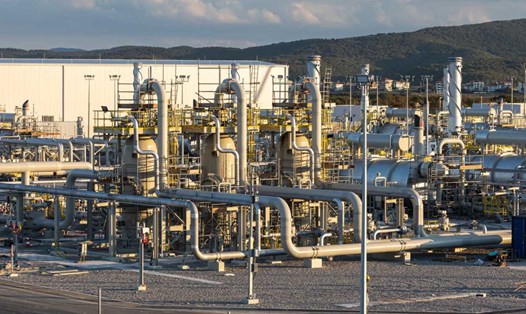Schlumberger (SLB) - one of the largest US energy corporations - is facing new pressure from the US Congress to end its operations in Russia after the administration of President Joe Biden imposed strong sanctions on the Russian oil industry, the Financial Times reported.
The new order, effective February 27, 2025, prohibits the provision of oil and gas services by US companies to any individuals in Russia. Congressmen Lloyd Doggett and Jake Auchincloss warned SLB that continuing its operations in Russia could violate sanctions, putting the company at serious legal risk.
SLB, the world's largest oil services group, is one of the few US companies still operating in Russia after the Ukraine conflict broke out in 2022. Meanwhile, SLB's two major competitors, Baker Hughes and Halliburton, withdrew from Russia last year.
According to an investigation by the Financial Times, SLB has not only continued to sign new contracts but also advertised more than 1,000 positions in Russia and imported equipment into the country since its competitors left.

In October 2023, more than 50 US lawmakers called on the Biden administration to strengthen sanctions against US oil service companies in Russia, accusing SLB of indirectly “supporting” Moscow.
Oil and gas services play a key role in the global energy industry, providing the technology and services needed for complex oil exploration. SLB's withdrawal from Russia is expected to cause major difficulties for the country's oil industry.
Craig Kennedy, a Russia analyst at Harvard’s Davis Center, said that if SLB were forced to withdraw, it would “shake the Kremlin” and significantly increase the operating costs of Russia’s oil industry. “Russia has become very dependent on advanced Western technology. If they lose that support, they will be on their own for the first time in 30 years,” Kennedy said.
Western policymakers have previously been reluctant to impose comprehensive sanctions on Russia’s oil services sector, fearing a spike in oil prices. However, the Biden administration expects the oil market to be oversupplied by 2025, and new sanctions would increase risks to Russia’s oil trade.
While SLB has pledged to comply with international law, the company has yet to comment on the new sanctions. SLB has previously violated US sanctions and paid a $232.7 million fine in 2015 for dealings with Iran and Sudan.
This time, pressure from the US government and Congress is putting SLB in a difficult position. If it fails to comply, the group could face legal consequences and lose its position in the global market.









